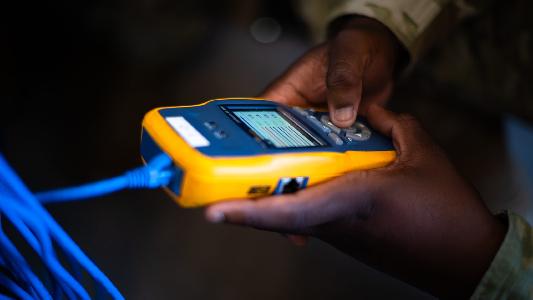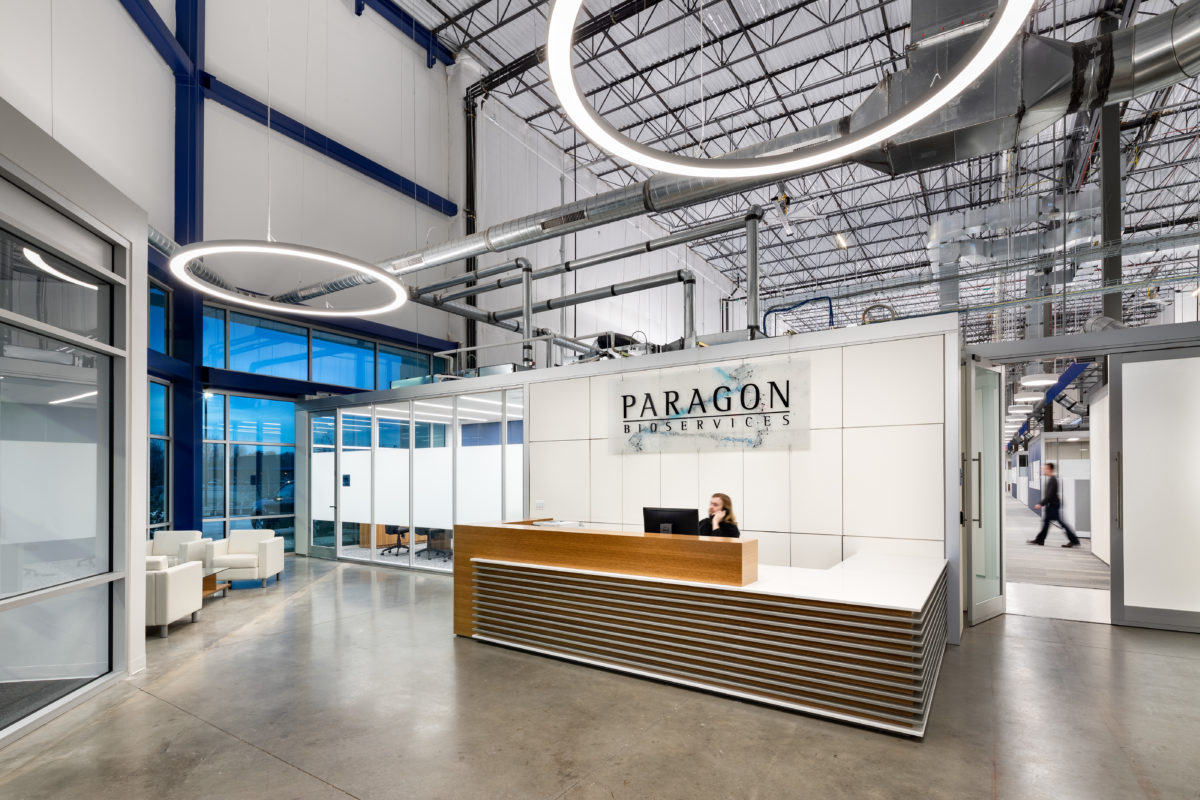University of Maryland BioPark-based Paragon Bioservices will be acquired by contract drug manufacturer Catalent in a $1.2 billion deal, the companies said Monday.
Catalent, which is based in Somerset, N.J., pointed to the nearly 30-year-old Paragon’s specialty in working with companies to develop and manufacture gene therapy. This area of medicine involves introducing DNA to fight a genetic disease.
“Paragon’s unparalleled expertise in the rapidly growing market of gene therapy manufacturing will be a transformative addition to our business that we believe will accelerate our long-term growth,” Catalent CEO John Chiminski said in a statement. “Paragon brings to Catalent a complementary capability that will fundamentally enhance our biologics business and our end-to-end integrated biopharmaceutical solutions for customers.”
In a conference call with analysts, Catalent CEO John Chiminski said the company’s due diligence showed Paragon to be one of only a couple “top-tier leaders” in the space.
“Paragon brings us capabilities we didn’t have in viral vector manufacturing and what Catalent brings is our ability to bring commercial manufacturing excellence at scale,” he said.
Chiminski also talked about a gene therapy market that was rapidly growing, with “demand in this space is far exceeding supply.”
Paragon is expected to top $200 million in revenue for 2019, double its 2018 revenue.
Paragon is backed by private equity investors including Inner Harbor-based Camden Partners and NewSpring Health Capital.
“We are excited to join forces with the leading drug development and manufacturing partner in our industry,” CEO Pete Buzy said in a statement. “This transaction will enable us to achieve our next stage of development and expand our capabilities and platform for the benefit of our customers and their patients.”
As part of Catalent, it will operate as a separate gene therapy business unity, with other specifics related to branding still to be determined.
Buzy, who joined in 2014 around the time of the investment by Camden Partners and NewSpring Capital, will remain the leader of Paragon, along with the entire management and employee team joining Catalent. For its part, Catalent has 30 facilities on five continents, and more than 11,000 employees; Paragon currently has 380 employees. The Baltimore company has also been making a series of leadership moves, bringing on an executive team that now includes 18 people.
“The hypergrowth Paragon is experiencing has created a huge demand for additional capital spending and new funding. The acquisition by Catalent is great news for Paragon, as it will enable us to continue our unparalleled growth in the gene therapy space and take the next step in accelerating Paragon’s strategy and increasing opportunities for its employees,” Buzy said.
Catalent has specific manufacturing capabilities in GMP manufacturing, fill/finish and analytics that will also help the company advance quality, systems, and infrastructure, Buzy said.
Paragon is expected to top $200 million in revenue for 2019, with 90 percent already reflected through contracts, according to the companies. That number would reflect doubling revenue over last year, according to a chart released by the companies showing $101 million in revenue in 2018. Revenue grew to that level from $28 million in 2016.
The deal is expected to have a meaningful effect on Catalent’s business. With Paragon, Chiminski said Catalent is expecting 6-8% long-term revenue growth. Prior to the acquisition, the growth was projected at 4-6%.
Catalent is financing the all-cash deal through a $650 million incremental term loan, and through issuing $650 million of a new series of convertible preferred stock to funds affiliated with Leonard Green & Partners, L.P.
The transaction is expected to close in the second quarter of 2019, subject to closing conditions.
Paragon leaders projected it will grow to 500 employees this year, 250 of which are based at its BioPark headquarters in Baltimore.
The deal makes it two quarters in a row that the Baltimore area’s biotech sector saw a big buyout. In March, Columbia-based Osiris Therapeutics announced plans to be acquired by London-based Smith & Nephew.
Having also worked with companies to produce vaccines and cancer immunotherapy treatments, Paragon Bioservices leaders projected it will grow to 500 employees this year, 250 of which are based at its BioPark headquarters in Baltimore. The company has been in the midst of expansion recently, last week marking the opening of a new manufacturing facility near BWI with officials including Gov. Larry Hogan.
At the event, Buzy said the new facilities will allow the company to scale up to producing the treatments after they’ve entered the market. Catalent is including funding of $100 million to continue the expansion as part of the acquisition.
On Monday, Paragon said it is also exploring a gene therapy manufacturing partnership with Sarepta Therapeutics, a Cambridge, Mass.-based company that develops treatments. That company has been drawing attention for initial results of a study on a treatment for Duchenne muscular dystrophy, a rare genetic disease. Along with developing the treatments, the firm also manufactures and has developed proprietary capabilities.
Through the partnership, the companies will seek to establish “additional dedicated facilities for manufacturing” Serepta’s treatments. This includes a second building in the same area near BWI. All told, the site has the potential to be home to more than 425,000 square feet of manufacturing space.
“By making our expertise available to Paragon and Catalent, we can ensure the success of our own manufacturing programs and explore potentially new and enhanced techniques to drive innovation in gene therapy manufacturing,” Douglas S. Ingram, Sarepta’s President and CEO, said in a statement.
Before you go...
Please consider supporting Technical.ly to keep our independent journalism strong. Unlike most business-focused media outlets, we don’t have a paywall. Instead, we count on your personal and organizational support.
3 ways to support our work:- Contribute to the Journalism Fund. Charitable giving ensures our information remains free and accessible for residents to discover workforce programs and entrepreneurship pathways. This includes philanthropic grants and individual tax-deductible donations from readers like you.
- Use our Preferred Partners. Our directory of vetted providers offers high-quality recommendations for services our readers need, and each referral supports our journalism.
- Use our services. If you need entrepreneurs and tech leaders to buy your services, are seeking technologists to hire or want more professionals to know about your ecosystem, Technical.ly has the biggest and most engaged audience in the mid-Atlantic. We help companies tell their stories and answer big questions to meet and serve our community.
Join our growing Slack community
Join 5,000 tech professionals and entrepreneurs in our community Slack today!

The man charged in the UnitedHealthcare CEO shooting had a ton of tech connections

From rejection to innovation: How I built a tool to beat AI hiring algorithms at their own game

The US needs to train more cyber talent to keep the country secure



